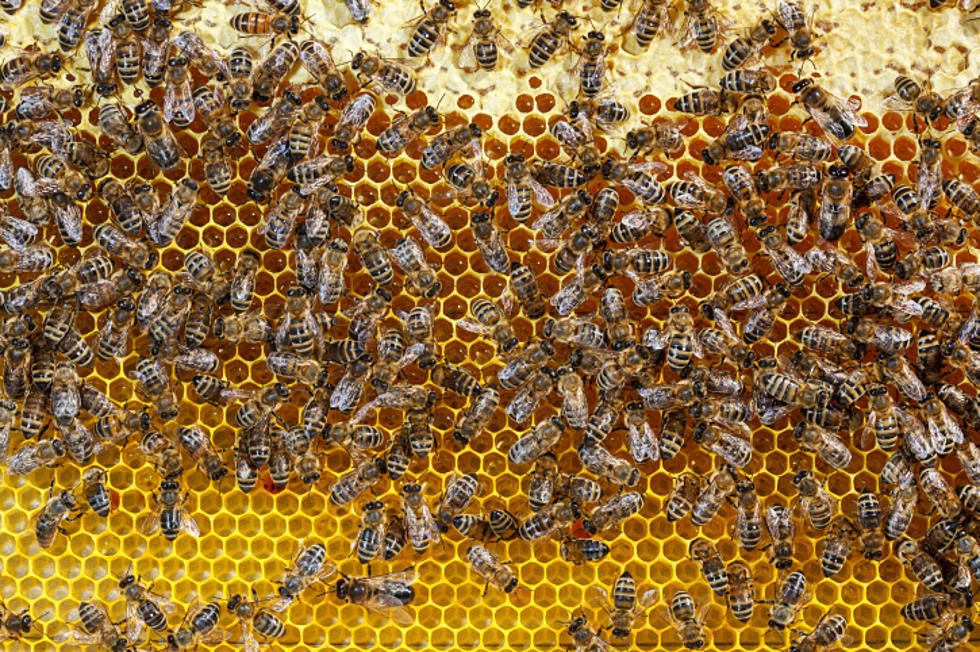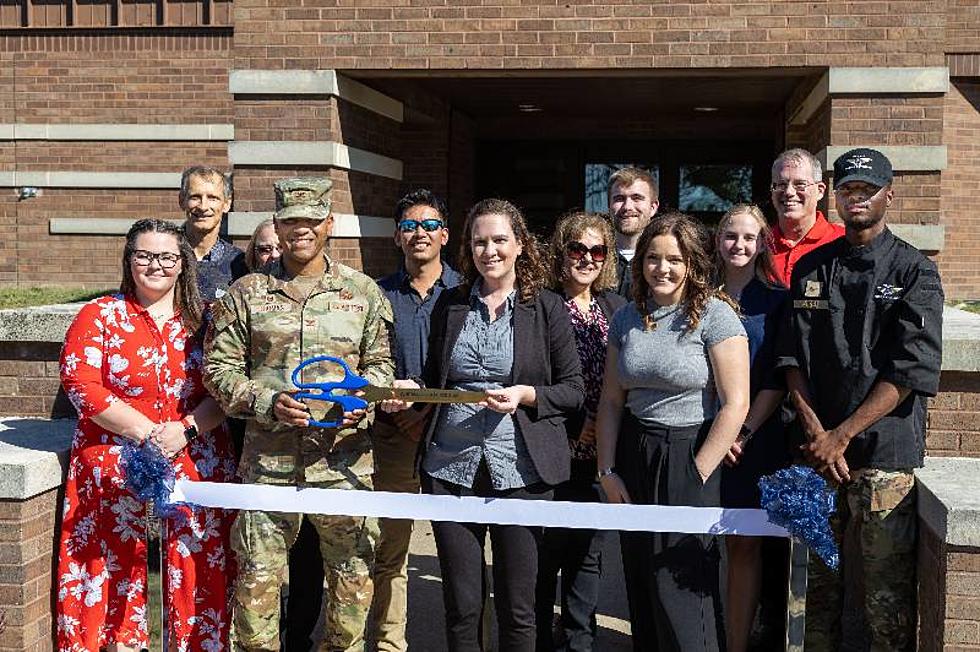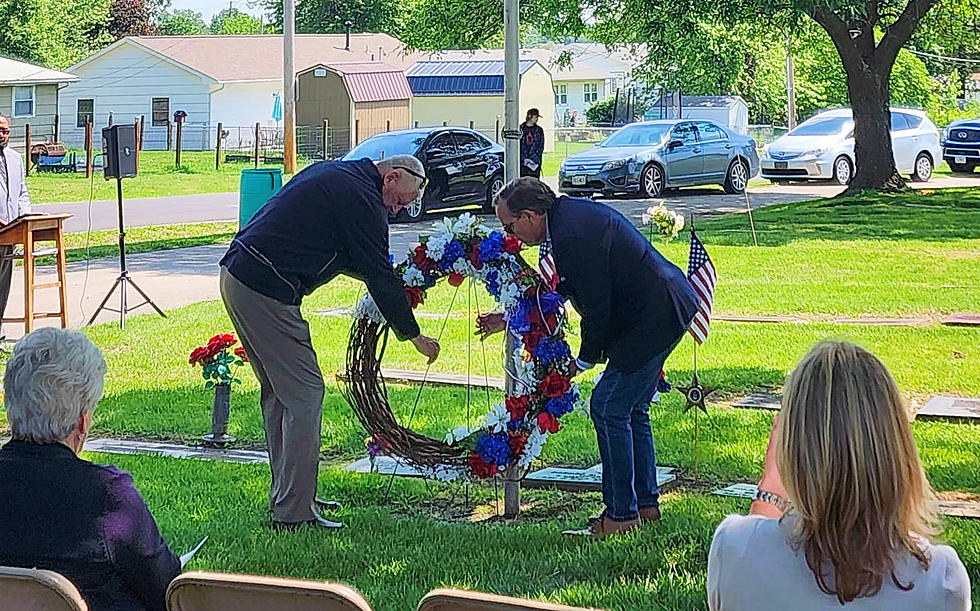
Beekeeping Program For Veteran Families Creates Buzz
Santiago and Julie Valdez say the Heroes to Hives program offered by University of Missouri Extension offers a sweet opportunity to expand their business and connect with other beekeepers who are veterans.
MU’s Heroes to Hives program is the first state chapter modeled after a program offered through Michigan State University and its partners.
The Valdezes offer homemade organic candles and bath and personal care items in grocery stores, boutiques, online and at farmers markets. Their Raw Buzz (www.RawBuzzCo.com) products come from a hive in their backyard and one at Julie’s family farm, where she also gets goat milk for products.
Julie began the business about three years ago, after receiving an economics degree. She sold goat milk soap at farmers markets. She also made candles in her basement and packaged them in baby food jars.
What she lacked in business background she made up in grit and determination, Santiago says. Coming from a family of small-business owners, she met bumps in the road with a “let’s find a solution” approach.
Santiago and Julie pitched their product by making personal visits to retail markets. They found a friend in Meyer’s Market Burg in Warrensburg, a business owned by another veteran family. About 50 stores, including some Hy-Vees, now carry their products.
They still work out of their basement but hope to own a brick-and-mortar store someday. As the economy slowed during the COVID-19 pandemic, they were happy they had low overhead and no debt.
Farmers market and special events remain good markets, Julie says. As parents, they make the most of their time by each taking one child and going to different weekend events.
Heroes to Hives taught them about the equipment and methods to safely harvest honey and beeswax. The Valdezes say the class also helped them learn how beekeeping differs by geographic region.
MU Extension agronomist Travis Harper teaches the classes at the Mitchell Street Farm at the University of Central Missouri in Warrensburg. Response in the pilot year was amazing, he says. Initially, he hoped for about 20-30 students. More than 290 Missouri veterans signed up, a mix of “new-bees” and skilled beekeepers.
Reasons for taking the class vary, Harper says. Some want to improve the environment for pollinators. Others want honey for themselves or in a business. Some just enjoy connecting with other veterans.
The MU Heroes to Hives program is about more than classroom work, says Santiago, a mechanic in the 509th Maintenance Group at Whiteman Air Force Base in nearby Knob Noster. The most valuable rewards come from making connections with other veterans.
“Being around other beekeepers who are willing to share advice is amazing,” he says. “And they are all veterans, so there is a connection I can’t describe. When you leave the military, people miss the camaraderie. Heroes to Hives brings veterans together in another community. It’s just a good recipe.”
Missouri is home to more than 440,000 veterans making the transition from military to civilian life, said Karen Funkenbusch, state director of the Missouri AgrAbility Project and the Heroes to Hives program. Returning veterans face challenges, including anxiety, depression, service-related health issues and disabilities, and finding personally rewarding career opportunities.
“These challenges are exacerbated by the loss of the camaraderie and support inherent in military units,” Funkenbusch said. “Transitioning vets often feel a sense of isolation and loss. Heroes to Hives offers veterans a chance to reconnect with their brothers and sisters in arms with a common mission of protecting the most important managed pollinator on the planet.”
For more information, the following MU Extension publications are available for free download:
“Beekeeping Tips for Beginners,” extension.missouri.edu/g7600.
“Honey Bees as Pollinators, Their Habitats and Products,” extension.missouri.edu/m403.
Related links:
Missouri AgrAbility, facebook.com/MOAgrAbility
Heroes to Hives of Missouri, facebook.com/HeroestoHivesMO.
Video: "Heroes to Hives," youtu.be/TmBiP49rulM
In the photo: Senior Airman Santiago Valdez and his wife, Julie, are polishing their beekeeping skills in MU Extension’s Heroes to Hives program, which teaches veterans and their families about beekeeping. The couple’s backyard hive provides honey and beeswax for their Raw Buzz microbusiness. Photo by Linda Geist.
Julie Valdez makes soap with honey and oatmeal in her basement for her Raw Buzz business. The honey comes from a backyard hive and one on the family farm. She says the Heroes to Hives program helps her and her husband learn how to improve their honey-making operation to grow their business. Photo by Linda Geist.
MU Extension agronomist and beekeeper Travis Harper teaches veterans and their families how to do beekeeping. MU’s Heroes to Hives program is the first state chapter modeled after a program offered through Michigan State University and partners. Photo by Tevin Uthlaut.
LOOK: Here is the richest town in each state
More From KIX 105.7










